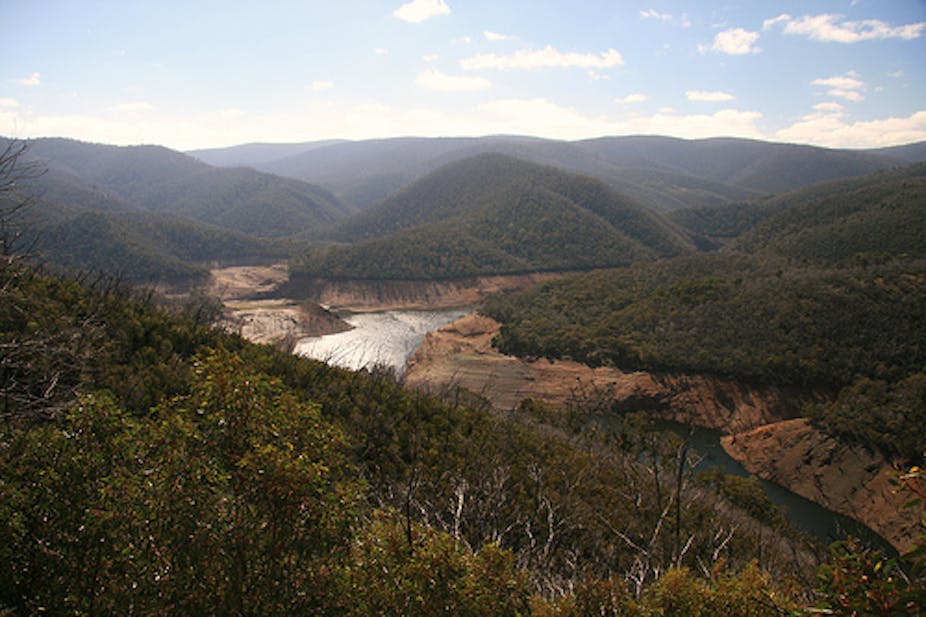In Greek mythology the Hydra was a reptilian guardian, a multi-headed creature defending one of the entrances to the underworld. If a would-be killer removed one of its heads, two more would grow in its place. In threatening the public interest work of the Environmental Defenders Office (EDO) with funding cuts, the NSW government may have provoked its very own Hydra in the form of an environmental legal community.
Since its inception in 1984, the EDO has received significant support from Australia’s most eminent members of the judiciary, environmental law professors, and influential members of the legal profession.
In 2010, for example, when EDO NSW marked its 25th anniversary, the Chief Justice of the High Court of Australia, Robert French AC, gave the keynote speech, highlighting the respect that the EDO has generated in the legal fraternity in NSW and beyond.
The current EDO Chairman is the eminent retired Federal Court judge, Murray Wilcox AO QC, who as a barrister was instrumental in establishing the office. The EDO has always had a diverse and distinguished Board, and its longstanding patron, Hal Wootten AC QC, was the foundation Dean of the UNSW Law School.
As an example of how highly the EDO is thought of in legal circles, Mr Wootten writes glowingly about its high reputation in a forthcoming book on its history over the last three decades. He comments:
“The fact that enthusiastic recruits of excellent quality are always available, that leading barristers can always be found to accept its briefs for modest fees or on a pro bono basis, that graduates from its ranks have been appointed to high office, and that it is treated with respect by its professional opponents and the judiciary is, in my view, a tribute not only to the reputation it has established but also to a widespread ethos amongst local lawyers that respects professional excellence and integrity, public service and social empathy. As one who had a role in the re-envisioning of legal education 40 years ago, this state of affairs gives me great satisfaction.”
In this vein, over the past few weeks a number of opinion pieces by members of the legal profession supporting the EDO have proliferated in the print media and online, including in The Conversation.
These comments have drawn attention to unprecedented and unwarranted attacks by industry, News Limited, and some parliamentarians on the professionalism and integrity of the EDO.
As a result of these attacks, it appears that the NSW government has sought to “punish” the EDO through funding cuts proposed for the next quarter, with more to follow. The attacks and cuts are supposedly justified by the suggestion that the EDO is a front for “legal obstruction” by way of vexatious litigation.
The attacks have mobilised a latent, but impressive network of EDO supporters in law schools and universities across Australia. When word went out two weeks ago through social media and email about an open letter to Premier O’Farrell condemning the attacks on the EDO, the response was prompt and unequivocal.
Within an hour of the call for assistance, Associate Professor Anton had received more than 30 enthusiastic responses. By the end of that day, the numbers had swelled to almost 50 and by the end of the week, the number had increased to 59.

The swiftness with which the environmental law academic community rushed to the defence of the EDO is telling. Most of these academics have had first-hand experience of the crucial role that the EDO has played in the development of environmental law and policy in NSW.
Each of them also deplores the stance that the NSW government is taking. Perhaps most importantly, these academics have provided a swift and powerful rejoinder, drawing on evidence-based reasons to demonstrate why the NSW government needs to protect the EDO and maintain EDO funding.
The EDO’s work includes advising government and individuals, drafting detailed and comprehensive policy recommendations, and importantly conducting ground-breaking public purpose litigation. The suggestion that the EDO is a front for “legal obstruction” is specious.
If the NSW government had thought that by conducting a smear campaign and cutting off funding it would destroy the EDO, it needs to re-think its strategies. In reality it has sorely misjudged the depth of respect and passion that people feel towards the EDO. Unlike Hercules, who in mythology managed to slay the Hydra, the NSW government will find that its actions have spawned a torrent of support that will be impossible to contain, let alone destroy.

